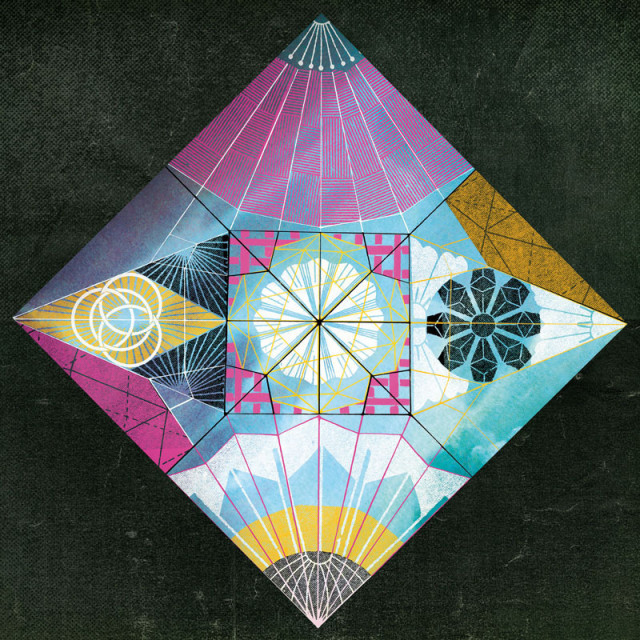Review: Laura Veirs 'Warp and Weft'

Ten years ago, the then-Seattle-based singer-songwriter Laura Veirs released her third album, Troubled by the Fire. Its centerpiece, “Cannon Fodder,” is a fiercely defiant song punctuated with the lines “I will not have a child / I will be wild / And not produce meat for your slaughter / No more cannon fodder.”
Fast-forward a decade to Veirs calling Portland home. Perhaps best known as a recurring guest singer on Decemberists records like The Crane Wife and The King Is Dead, as well as for her own sparkling 2011 album of children’s music, Tumble Bee, Veirs has delivered her ninth album—and her second child. Time and circumstances have honed her vision to an ideal sharpness, resulting in her finest work to date, the pensive and uplifting Warp and Weft. Now a mother herself, she’s still very troubled by the violence she sees. But Veirs, as she always has, invites us to take comfort in the resilience of nature and our own divine potential to create transcendent art.
Working with producer and husband Tucker Martine (Neko Case, R.E.M., the Decemberists) and a top-notch supporting cast that includes Case, k.d. lang, My Morning Jacket singer Jim James, Karl Blau, and Decemberists bassist Nate Query, Veirs transfers her hopes, fears, and aspirations into a brilliant collage of an album that crackles with the same vitality and delicate detail as an Andrew Wyeth landscape.
While alternating between poetic reveries inspired by nature (“Sun Song,” “White Cherry”) and bittersweet odes to inspirational figures like Alice Coltrane (“That Alice”) and folk artist Howard Finster (“Finster Saw the Angels”), Veirs also finds the words to vent on the state of our union in “America” (“How can it be so cold out here in America? / Everybody’s packing heat in America / Training their barrels on the city streets of America”). Rather than waste time raging, though, Veirs collects her wits and, in “Sadako Folding Cranes”—a song as exquisitely rendered as its poignant subject matter—softly reminds us of the story of Sadako Sasaki, who survived the blast of Hiroshima. “One mile from Misasa Bridge / The atom bomb explodes / She is blown out of the window / She is two years old,” sings Veirs. Sadako lived for another 10 years, and legend has it that she spent that time trying to create 1,000 origami cranes in the belief that her final wish—peace—would be granted.
Despite the big names around her, Veirs remains firmly at the wheel on Warp and Weft, shaping 12 superb songs around her guitar and a riveting voice that’s capable of channeling childlike wonder—and a mother’s sadness that’s as deep as a well in a neglected garden.




